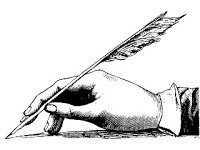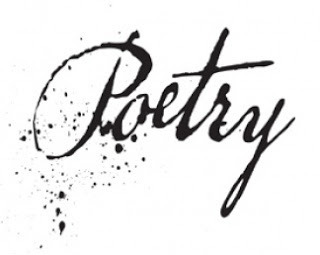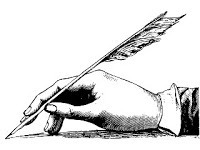A little collection of poetry, and some home truths.


I am hugely pleased to have a poetry pamphlet in the pipeline from Pighog Press. Due out in November, this will be my first little poetry collection - and it has the strange but “I like it so I hope you do too” working title of The Half-Life of Fathers. That is the title of a poem commissioned last year by artist Philip Hartigan for his Dia Del Padre exhibition in Chicago, and it was also given a special mention in the last Essex Poetry competition. I am looking forward to the Pighog reader’s report, then working with my editor, and talking over the cover designs. Fun!
Having said it is a little collection, I’m not sure the world of poetry really allows that word to be used when it isn’t a ‘proper book’ - pamphlets to be distinguished at all times from the proper books, I suppose? However, Pighog refers to the latter as ‘full collections’ so in that vein, I am calling this pamphlet a 'little collection'. As well as a pamphlet.

The different conventions in this poetry world take some getting used to. No-one told me, for example: If you are mainly to date a prose writer and have an agent, you do not request said agent to approach publishers of poetry, as I did because it seemed natural. Apparently, the publishers do not like it, and the poet is expected to do the contacting themselves. Why? It would be useful if some published poets/poetry presses could cast light on this one. One would have thought the slush piles are fifty times higher than prose...
Who was to know all this? But anyway - among whatever else was happening, I did approach Pighog myself because it’s local, their publications are excellent quality, I know a few of their poets, such as the brilliant Clare Best, and am grinning with pleasure to be joining their ranks. It is also a joy to be published in a limited edition of 300 copies. Why? Because there is then no pressure to sell sell sell to keep the book in print...although I will do my bit while it exists, as I have always done. Publishing any book is a partnership.

Another convention in the poetry world mirrors one that the prose world adhered to some years ago, ie: a record of online publication does not seem to be seen as much cop. This despite the rigorous editorial skills of someone like Helen Ivory, for example, who edits Ink Sweat and Tears...which makes little sense to me, but there you go. Maybe someone who knows more can explain? To be taken seriously, you need a record of quality publications in ‘proper’ magazines, to make up a strong CV. (There’s that word again - the poetry world still seems to have a strong backbone of properness - convention.) If they are thinking commercially, I'd have thought so long as you have a following, does it matter where you are read? A poem probably gets far more readings online than it does in a paper publication... no? If they are thinking purely professionally, why does another editor's previous decision to publish you strengthen their own?
So how does it work if like me, you kept most of your poetry in the depths of your hard drive, as it was something you turned to when prose didn’t fit the feelings welling up, and when written most of it was forgotten as you had no idea what to do with it? I was not, and am not, part of any poetry communities, so was not learning markets. Not out of laziness, I hope, more from a belief that I wasn't really a poet. Ah but sometimes, I’d send stuff out, when I occasionally stumbled across somewhere that looked suitable - and sometimes it would be accepted, and sometimes not, but I had no idea why in either case. Or, I’d send it to a comp I didn’t mind supporting with a fiver, as with Bridport (funds go to the Arts Centre - my stuff has been shortlisted a couple of times), or the Troubadour (funds go to support a great live event series, my stuff won a prize last year). But it was always hit n miss, no strategy, because all my strategising was going into my prose. And because of that, I suspect my poetry hasn’t done as well as it might have done, had I worked at it harder. That’s fact.

I guess the answer to that is, either you play the game by the rules, or you don’t. And there are conventions, so if you want to get anywhere, follow them. And I don’t think it is coincidence that attending some workshops with Pascale Petit and learning, learning about editing in particular, runs alongside doing a bit better, do you?
.
Published on February 05, 2013 01:23
No comments have been added yet.
Vanessa Gebbie's Blog
- Vanessa Gebbie's profile
- 30 followers
Vanessa Gebbie isn't a Goodreads Author
(yet),
but they
do have a blog,
so here are some recent posts imported from
their feed.



